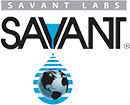ASTM D7155 Practice for Evaluating Compatibility of Mixtures of Turbine Lubricating Oils
This practice covers the compatibility of mixtures of turbine lubricating oils as defined by Specification D4304. The methods compare the properties of specific mixtures with those of the neat oils after storage at specified conditions.
The compatibility of oils can be important for users of oil-lubricated equipment. Mixing of two oils can produce a substance markedly inferior to either of its constituent materials. One or more of the following can occur:
- A mixture of incompatible oils most often forms a precipitate. The precipitate will form unwanted deposits in the lubrication system, plug filters, and oil passageways.
- A mixture of incompatible oils will sometimes exhibit degradation of certain performance parameters like demulsibility, foam inhibition oxidation stability, rust protection ability, or antiwear protection ability.
- A mixture of incompatible oils will sometimes exhibit non-miscibility of the base oils with each other.
- Such incompatibilities can lead to catastrophic equipment failures.
- To minimize the chances of these problems occurring, lubricant suppliers recommend evaluating compatibility of lubricating oil of different formulations and sources prior to mixing. Equipment users most often do not have the resources to evaluate oil compatibility and must rely on their suppliers. Mixing of oils without first determining the compatibility is a highly imprudent practice.
Savant Labs offer test methods for turbine lubricants including viscosity, oxidation resistance, foam testing listed under this specification. The technical team at Savant Labs has a deep understanding of these tests. We can help you define a test slate to follow this practice and analyze the data. Contact us for more information or request a quote for your next turbine lubrication project.
International Methods and Standards
ASTM D445 Viscosity
ASTM D611 Aniline Point
ASTM D664 Acid Number
ASTM D665 Rust Prevention
ASTM D892 Foam, Sequence I
ASTM D893 Pentane Insolubles
ASTM D974 Total Acid Number
ASTM D1401 Water Separability
ASTM D1500 Color
ASTM D2270 Viscosity Index
ASTM D2272 Oxidation Stability by Rotating Pressure Vessel
ASTM D3427 Air Release
ASTM D4310 Sludging & Corrosion Tendencies
ASTM D4629 Nitrogen by Chemiluminescence
ASTM D5185 Elemental Analysis by ICP
ASTM D6304 Water by Coulometric Karl Fischer Titration
